Breaking Barriers: Women athletes leading the fight for change

The 16 Days of Activism Against Gender-Based Violence is an international campaign to end violence against women and girls, observed annually from November 25 (International Day for the Elimination of Violence Against Women) to December 10 (Human Rights Day). It was first launched in 1991 by the Women's Global Leadership Institute and is now supported by the United Nations, governments, NGOs, and individuals worldwide.
This year, a part of the campaign, Star Lifestyle speaks to some of the women athletes of Bangladesh who are not only striving for glory in the world of sports but are also challenging societal norms and becoming role models for countless young girls across the country.
"Every player has one person who pushed them" - Sabina Khatun
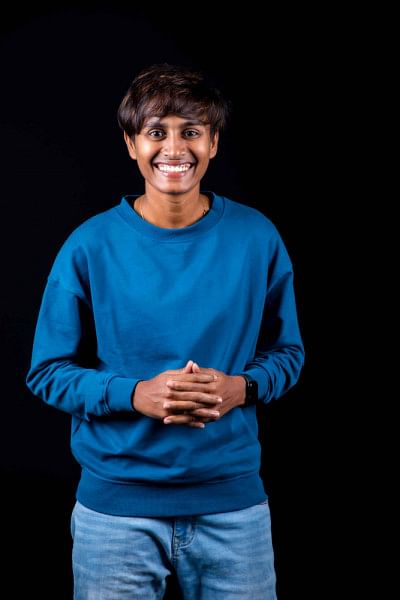
Sabina Khatun's venture into the world of sports did not begin with football. "Every player, I believe, has this one person who pushed them forward to reach their fullest potential. For me, that person was my coach at Satkhira's Nobarun Girl's School, Akbar sir. He made me take part in everything – handball, football, cricket, kabaddi, 100-metre sprint, whatever there was to play!" she exclaimed.
After seeing her excel in one sport after another, coach Akbar one day decided to meet Sabina's family.
"I was always playing. Even when he came to my house to meet my parents and four sisters, I was outside running around with the neighbourhood boys," Khatun laughed.
Akbar informed her parents of her potential. And Sabina's parents and eldest sister agreed with him.
"For women in this country, it's impossible to play sports professionally if they don't have their family by their side. That support from home is imperative," Sabina voiced, her tone growing serious.
Although female sportspersons have more freedom now, there were always struggles in the early days.
She recounted, "Our coach had to endure a lot. The entire neighbourhood was against him for training girls in sports. But he did not let that affect any of us. Sometimes, when all the girls sit and share stories of the past, it makes me laugh. They say things like, 'We used to try and run away but our coach would drag us back onto the field for training. We were young and didn't understand why.'"
It is those coaches and their perseverance that ultimately helped these girls stand on their own two feet and kick the ball!
"I never aimed to be where I am right now. I just wanted to play football, that's all. When I was announced as the best player of the team in the 2010 SAFF Championship, I was unaware that my name was even being announced, it was that unexpected for me," she admitted. "Back then, there were no facilities and barely any payments for us. Even until 2015-16, there was no financial support. Those of us who stuck through did so out of pure passion for the game. It is the love for the game and the struggles we have overcome that brought us this far, that brought me this far."
When Sabina, now captain of the women's team, compared her past to her present, she found it to be vastly different.
"Before, we would just play. But now, if you notice, almost every player in our team is the breadwinner of their family. Ritu, me, and even our youngest player, Sagorika — we take our family's responsibility. I think this fact itself is such an inspiration that from such a young age we can support our families. And that is why our families know the importance of football in our lives," Sabina concluded.
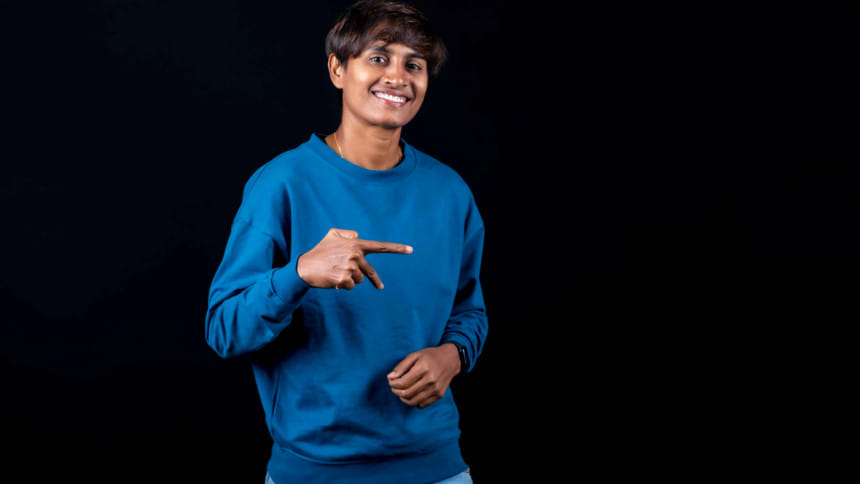
Sabina Khatun
Age: 31
Debut: 2010
Position: Forward
Best performance: Hattrick in a 6-0 win against Pakistan in SAFF Women's Championship 2022 in Kathmandu
Courtesy: TDS Sports Desk
"I never thought I would be MVP" - Ritu Porna Chakma
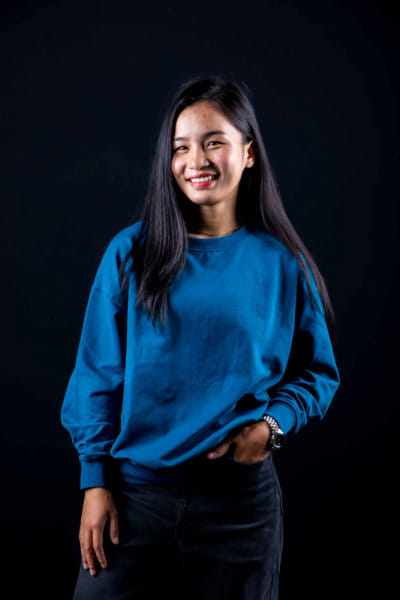
Ritu Porna Chakma from Rangamati's Kawkhali upazila came from a humble beginning. Although she first kicked a football when she was just in class three, it was later on that she was able to develop a passion for the game.
"The first time I kicked a football in 2012, I almost broke my toe," Chakma chuckled, as she reminisced about the early days. "Back then I had no such dream of becoming a football player. I didn't even know girls could have international teams! To me, it was a game that I enjoyed playing a lot."
Ritu Porna was a Mogachhari Government Primary School student, which has already become popular for producing top-notch athletes. There, under the guidance of head teacher, Birsen Chakma, Ritu's perspective of the game began changing.
"It began with the Bangamata Fazilatunnesa Cup. It was compulsory for us to participate. Birsen Chakma sir included me in that team for the tournament in 2012 and until 2015, I played every year," said Chakma while recounting her formative years.
Then, tragedy struck. Ritu's father, the sole bread earner of their family passed away and life, as she knew it, came to a standstill.
"We're four sisters and one brother. We come from a very poor family and after the death of my father, everything stopped – my studies, my football, everything," she said with a heavy voice. That was when Birsen, once again, lifted Ritu. "He took responsibility for everything to ensure I don't stop playing football."
Coupled with her teacher's efforts was the undying support of her family, which ultimately led Ritu to join the national team in 2017 for the SAFF U-15 Championship.
"The sole reason I was able to come this far was my family's support, especially my mother and my didi [elder sister]. Despite all odds, they always prioritised my needs, my dreams, and my aspirations. My career as a footballer was only possible because of them.
"However, it was difficult for my family as well. Society tried in many ways to hold me back. Our neighbours would say negative things to my family but my mother and sister never let those words even reach my ears," she added, a hint of defiance in her tone.
With those women standing behind her like a wall, no obstacle could reach Ritu as she soared her way to the top.
Ritu Porna's performance in the final match against Nepal in the SAFF-2024 Championship grabbed headlines not only in the country but also abroad. It was enough to prompt talks among European clubs to recruit the 20-year-old prodigy.
"I never thought I would be the most valuable player [SAFF-2024]. It's a great achievement for me. My family and I are very proud. I can't put into words how it feels," Ritu Porna Chakma mentioned with pride.
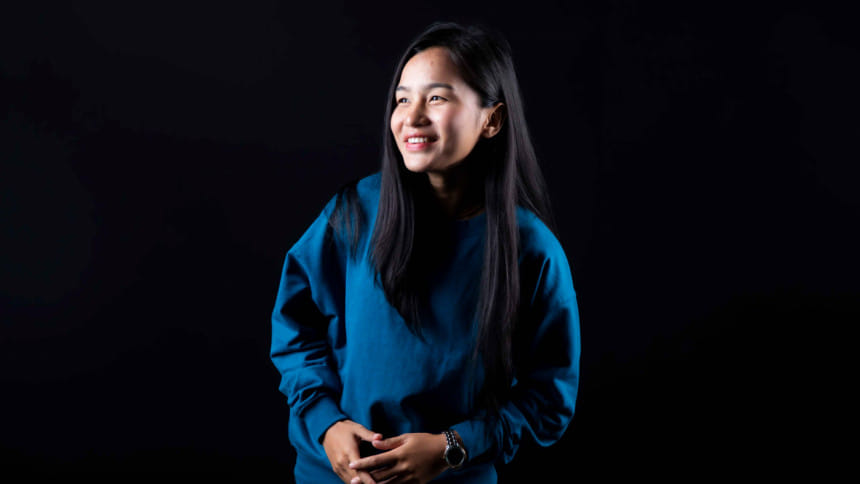
Ritu Porna Chakma
Age: 20
Debut: 2021
Position: Attacking midfielder
Best performance: Scored the winning goal against Nepal in the SAFF Women's Championship 2024 final in Kathmandu
Courtesy: TDS Sports Desk
"I turned my critiques into my supporters" - Nahida Aktar
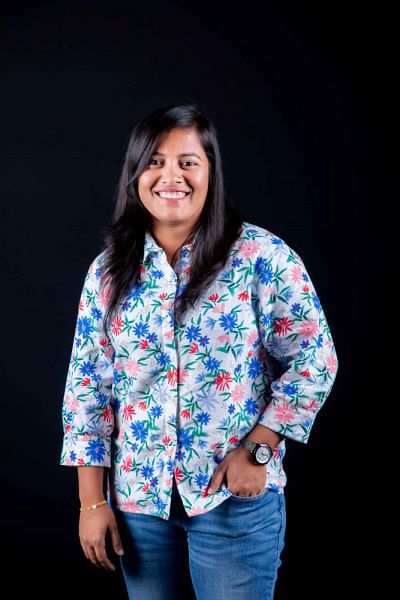
Hailing from Kishoreganj, Nahida Aktar had her eye on sports from a young age.
"We used to live in Dhaka since I was a child because my father was a government job holder. We used to live in a colony where I was always playing something or the other with the neighbours. People would call those 'boy's' sports,'" she recalled.
Nahida Aktar, however, knew that just playing on the streets was not her goal. She wanted to make something of herself using her love for sports and her skills.
"I used to keep checking the newspaper to see when BKSP [Bangladesh Krira Shikkha Protishthan] was admitting students. The moment I found a suitable time to be admitted, I took my chance and thankfully got in," Aktar explained.
And added — "My schooling, training, everything happened in BKSP. After leaving home and my family, there was a stubbornness working in me. I kept thinking, 'I came away from home to do this, and I must do something bigger than just joining BKSP. I need to prove myself.' Even being admitted was a big opportunity for me. When I got the chance, my thought process changed. I thought, 'If I need to do something for myself, this is where I can do it from, there is no alternative.'"
At BKSP, coaches Mehedi Hasan and Dolly Rani Sarker took Nahida under their wings.
"I was always more into batting, but they kept insisting that I get into spin bowling. They saw something in me that I had not. They pushed me towards left-arm spinning. I would sometimes get annoyed, but now I realise that because they pushed me, I am where I am now as a bowler," she shared.
After training in left-arm spin, Nahida played her first match against Abahani and got a five-wicket haul.
"I was just in class eight. That's when my journey began at the national camp," she recounted.
However, criticism was always there. "My family was hounded by neighbours for letting me play, but that just pushed me further to prove myself. I told myself, 'I need to get out of here [the colony] to play and show them what I can do,'" Nahida said.
"When I left, I was away from all the criticisms. They did not see me, so they did not speak. But once I established myself, their attitude changed towards me. They then began praising me and telling my family about how well I was doing. I was able to turn my critiques into my supporters through my performance," she said, with a smile on her face.
Today, Nahida is not only the vice-captain of the national team but also the only Bangladesh woman to be named ICC Player of the Month (November 2023) and to be included in the ICC Team of the Year (January 2024).
"Any such achievement, especially on an international platform, is a huge deal. Without the support of my team, my captain [Nigar Sultana Jyoti], our manager, it would have been impossible. However, there's always some pressure after international achievements – that of holding on to it. People's expectations rise. While that feels good, it also gives some pressure," Aktar added.
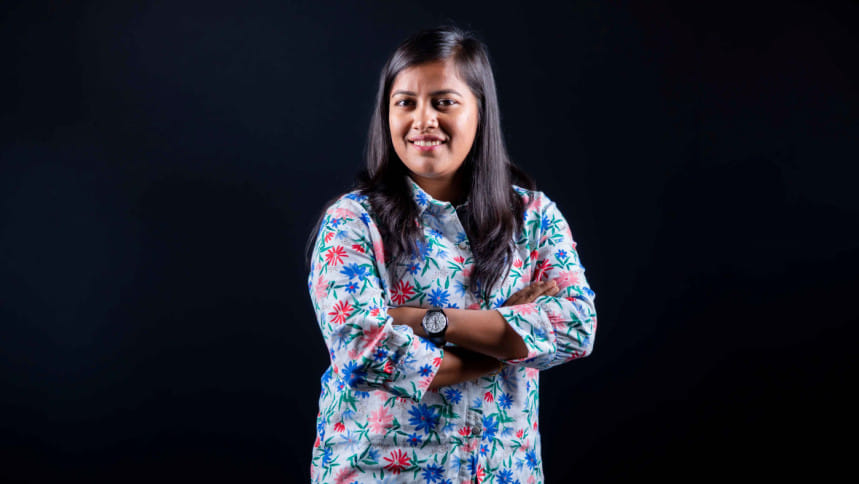
Nahida Akter
Age: 24
Debut: 2015
Bowling style: Slow left-arm orthodox
Best performance: 5-8 against Pakistan in WT20I, Chattogram, 2023
Courtesy: TDS Sports Desk
"I always say, 'Don't tell them, show them" - Jahanara Alam
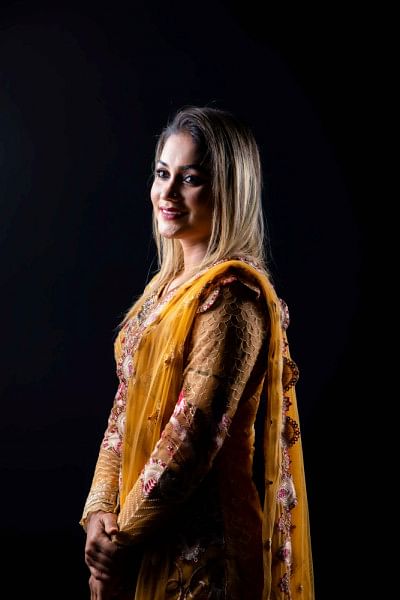
Jahanara Alam was one of 11 players to debut together and form the first-ever Bangladesh women's cricket team. Before that, she never imagined she would be representing the country to the world.
"I was an ordinary girl with no big aspirations. My mother used to dream that my sister and I would become news presenters so that she could see us on TV. But my sister became a sub-inspector and I, a cricketer," Alam shared.
From the age of 10, Jahanara had a knack for sports.
"I was a student of Pioneer Girl's High School in Khulna, which was popular for sporting activities across the district. When I saw some seniors playing volleyball one day, I asked if I could touch and receive the ball. Our Madam, who was watching from afar, called me to her and asked me if I wanted to play, and I immediately said yes," Alam recounted.
"With my parents' permission, I began to practice the very next day and within months, I was included in the main school team. I realised then that perhaps I had something in me," she reflected.
In 2003, Jahanara came to Dhaka to represent the Khulna division's handball team, and in 2004, she played the first domestic football match for women as part of the divisional team.
"I was only 11 then. A news channel had taken my interview, and I was so happy that my mother would get to see me in the news, perhaps not as a presenter but in the news nonetheless!" she chuckled.
In December 2006, the Bangladesh Cricket Board took the initiative to form a women's team, as per ICC directives.
"All the divisional coaches under BCB were then informed to recruit talented sportspersons. Our divisional coach was the late Sheikh Mohammad Salauddin sir, who was the spin bowling coach of the national men's team back then. He used to live near my home, and he noticed that I had a 'sporty' personality," Jahanara explained.
She added, "Khulna is a conservative place and there, I stood out. I would be walking about in T-shirts, trousers, and sneakers. He noticed that. One day, he approached me and asked if I would be willing to play cricket. I immediately said yes – it's a sport, so I will play."
Jahanara, however, had no idea about cricket when she readily agreed to play.
"Initially, I was not able to do anything – no bowling, no fielding, no batting. I was clueless. I didn't even watch cricket before I started playing it," Alam admitted.
"But what I had was fitness. Even before training time, I would show up on the field and do whatever I could to increase my stamina and endurance. I was first put in the 'batting group.' However, after a month of training, I found my strength in pace bowling," she revealed.
With intense training, Jahanara achieved her highest speed of 120 kmph. "Once it dropped to 116 kmph, I trained harder to bring it back up. And Salauddin sir ensured that I was able to do so,"
Back in Khulna, Jahanara was a victim of rampant "eve-teasing."
"There was a time I borrowed my aunt's burka to commute to school. I didn't share it with my family out of fear that they would stop me from taking part in sports. My parents too faced a lot of insults from society. During my adolescence, people would tell them, 'Your daughter is of age, why are you letting her play? If she wears sports jerseys, no one will want to marry her,'" she recalled.
To them, her father replied, "My daughter is not doing anything wrong. She is doing a good thing. If she wants to play, I will let her play. My grandmother too was one of my biggest strengths. She has passed away, but I remember when I was younger, my father had a rule to return home before Maghrib. If I was ever late, my grandmother would wait outside and when I came, she would take my hand and walk inside the house, saying, 'She was with me,'" Jahanara Alam shared, her voice brimming with love and respect.
After Jahanara made a name for herself, those who had pressured her parents changed their tune.
"They now say, 'Jahanara is our pride.' And that's why I always say, 'Don't tell them, show them,'" she concluded.
After a year-long break, Jahanara is representing the country again as they face Ireland. This interview was taken just before the start of the series.
"I feel blessed to be able to represent Bangladesh again. I worked hard for it," she smiled.
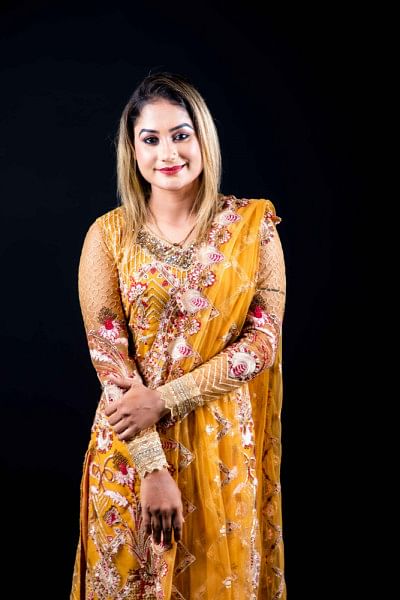
Jahanara Alam
Age: 31
Debut: 2011
Bowling style: Right-arm medium
Best performance: 5-15 against Ireland in WT20I, Dublin, 2018
Courtesy: TDS Sports Desk
PHOTO: SHEIKH MEHEDI MORSHED

 For all latest news, follow The Daily Star's Google News channel.
For all latest news, follow The Daily Star's Google News channel. 

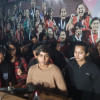



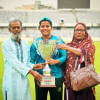


Comments